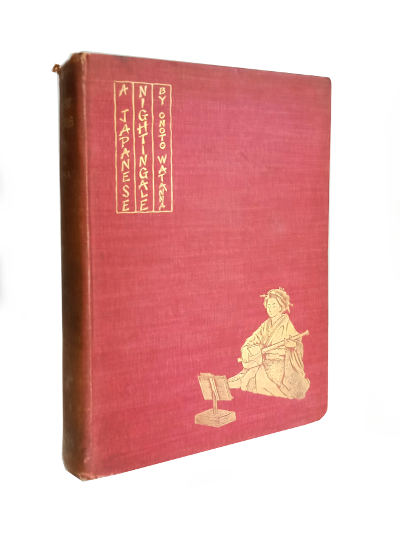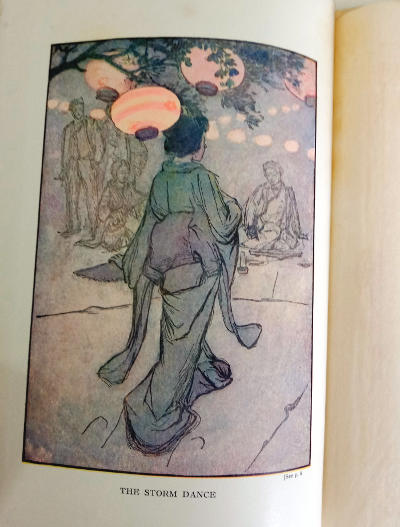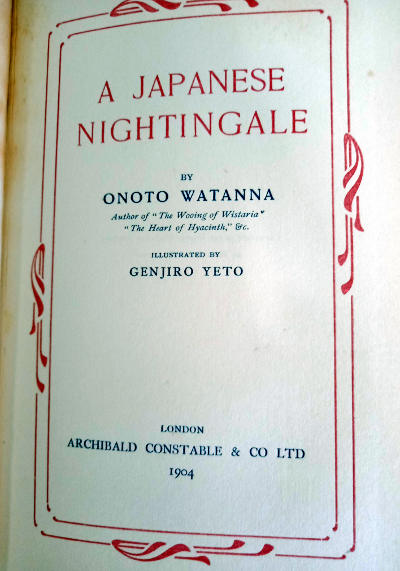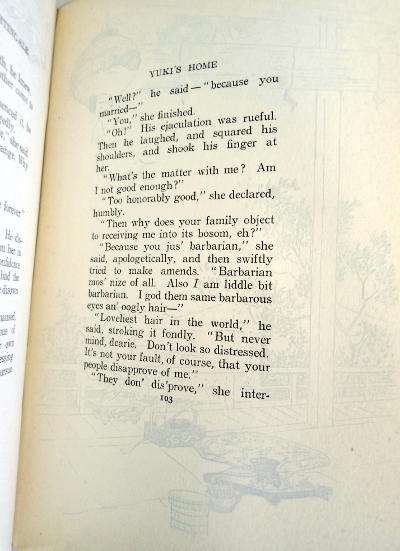About the book (from Imdb – the book was adapted into a silent film in 1918):
A young Japanese woman named Yuki runs away and becomes a geisha girl in order to escape marriage to the lecherous Baron Nekko. Her brother’s American friend, John Bigelow, falls in love with Yuki and marries her, but Ido, the marriage broker, who will lose a large commission if the wedding of Yuki and the baron is canceled, breaks into the American consulate, murders the consul, and steals the marriage certificate. When Yuki’s brother arrives home from America, he is informed that she and John are living together unlawfully. To save her husband from her brother’s vengeance, Yuki resolves to marry Baron Nekko, but Ido, having been mistreated by the baron, finally admits his guilt and returns the marriage certificate.
About the author (from Wikipedia):
Winnifred Eaton was a Canadian author and screenwriter. Although she was of Chinese-British ancestry, she published under the Japanese pseudonym Onoto Watanna and under the name Winifred Reeve.
Eaton was only 14 when one of her stories was accepted for publication by a Montreal newspaper that had already published pieces by her sister. Before long she also had articles published in several popular magazines in the United States, notably the Ladies’ Home Journal.
Poster for Klaw & Erlanger’s production of A Japanese Nightingale in New York in 1903
She left home at 17 to take a job as a stenographer for a Canadian newspaper in Kingston, Jamaica. She remained there for a year, then moved to Chicago, Illinois, where for a time she worked as a typist while continuing to write short stories. Eventually, her compositions were accepted by the prestigious Saturday Evening Post as well as by other popular periodicals. She moved from this to writing novels, capitalizing on her mixed ancestry to pass herself off as a Japanese American by the name of Onoto Watanna (which sounds Japanese but is not Japanese at all). Under this pseudonym, she published romance novels and short stories that were widely read throughout the United States.
In 1900, Eaton moved to New York City, where her second major novel, A Japanese Nightingale, was published. It proved extremely successful, being translated into several languages and eventually adapted both as a Broadway play and then, in 1918, as a motion picture. Her novel Tama (1910) was a runaway bestseller and her novel Me, A Book of Remembrance, a thinly disguised memoir, told a titillating tale of a woman’s infidelities.
In collaboration with Sara Bosse, Eaton wrote, also under the pseudonym Onoto Watanna, the Chinese-Japanese Cookbook, published in 1914. The authors preface their history of Oriental food and a representative selection of recipes with the reassurance that “When it is known how simple and clean are the ingredients used to make up these oriental dishes, the Westerner will cease to feel that natural repugnance which assails one when about to taste a strange dish of a new and strange land.”





